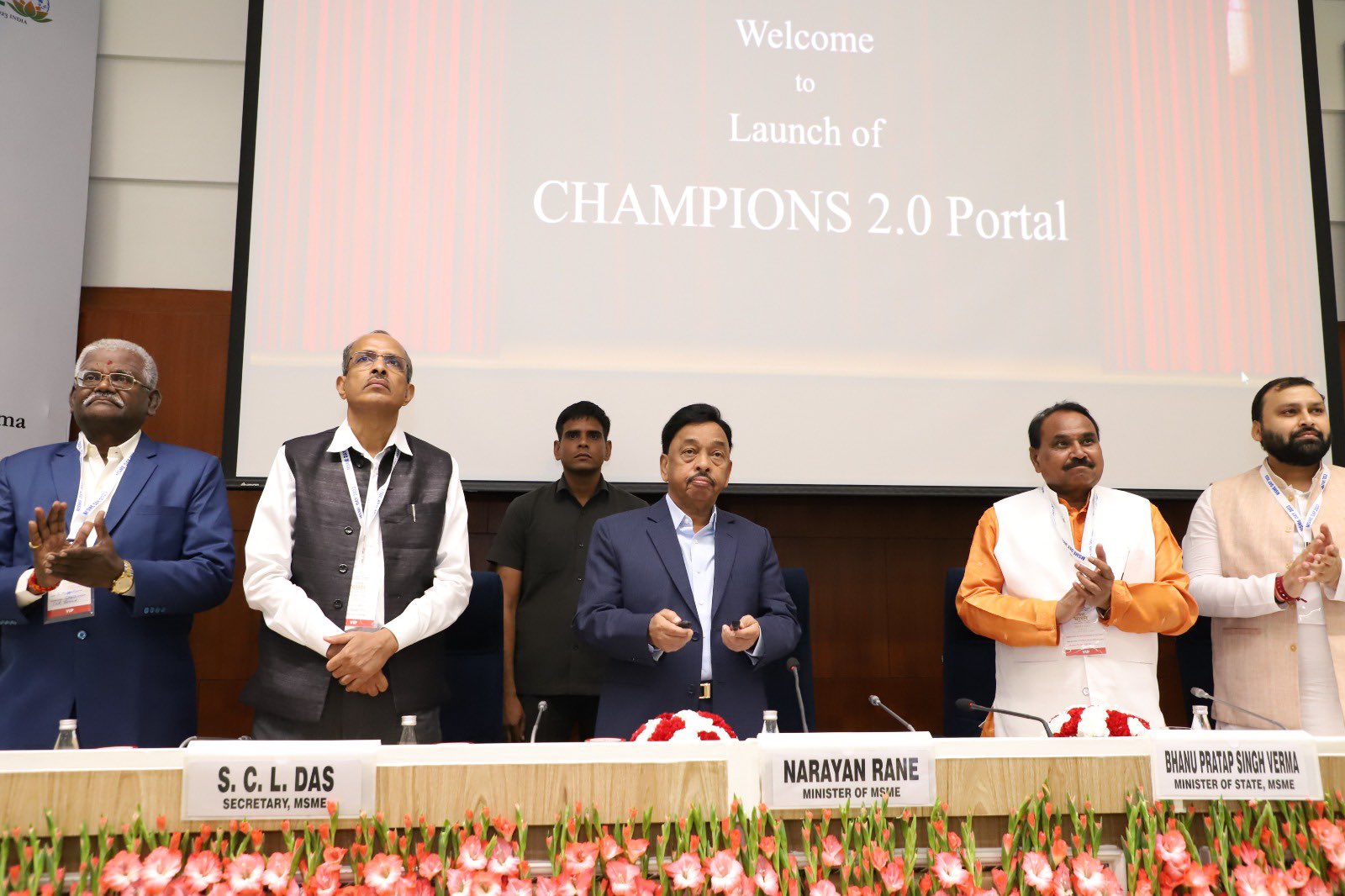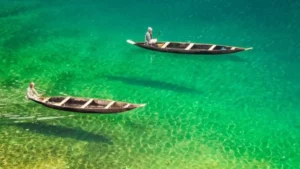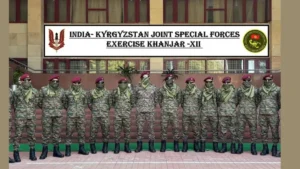On the occasion of International MSME Day, the Ministry of Micro, Small & Medium Enterprises (MSME) celebrated ‘Udyami Bharat-MSME Day’ with a special event. The Union Minister for MSME, Shri Narayan Rane, launched several initiatives aimed at promoting the growth and development of MSMEs in India. The event also featured the Union Minister of State for MSME, Shri Bhanu Pratap Singh Verma, and highlighted the significant role of MSMEs in the country’s economy.
Importance of MSMEs
Shri Narayan Rane emphasized the crucial role of MSMEs in contributing to the country’s GDP and exports. He expressed hope that MSMEs would account for 50% of India’s GDP by 2030. Recognizing their potential, he encouraged stakeholders to work towards making India a USD 5 trillion economy.
Launch of CHAMPIONS 2.0 Portal
As a part of the initiatives, Shri Narayan Rane inaugurated the ‘CHAMPIONS 2.0 Portal.’ This platform aims to provide support and assistance to MSMEs by addressing their concerns and grievances effectively. The portal serves as a single-window system for grievance redressal, knowledge sharing, and fostering innovation among MSMEs.
Mobile App for Geo-tagging of Cluster Projects and Technology
Centers Another significant launch was the ‘Mobile App for Geo-tagging of Cluster Projects and Technology Centers.’ This app facilitates the geo-tagging of various projects and technology centers associated with MSMEs. It enhances transparency, monitoring, and evaluation processes while promoting effective utilization of resources.
MSME Idea Hackathon 3.0 for Women Entrepreneurs
In a move to empower women entrepreneurs in the MSME sector, the ‘MSME Idea Hackathon 3.0’ was introduced. This hackathon provides a platform for women entrepreneurs to showcase their innovative ideas and solutions. It encourages their participation in the growth and development of the MSME ecosystem.
Remarkable Achievements and Recognitions
During the event, Shri Bhanu Pratap Singh Verma acknowledged the significant progress of Indian MSMEs in the country’s economy. He highlighted that since 2014, India’s GDP ranking has improved from the 10th to the 5th position, underscoring the valuable contribution of MSMEs.
Certificates Distribution and Subsidy Release
Both Union Ministers distributed certificates to Gold and Silver ZED-certified MSMEs, recognizing their excellence and commitment to quality. Additionally, a digital release of 400 crore Margin Money subsidy was made to 10,075 beneficiaries of the Prime Minister’s Employment Generation Programme (PMEGP) units.
MoU Signings
Several Memorandums of Understanding (MoUs) were signed between the Ministry of MSME and various organizations to promote collaboration and streamline processes for the benefit of MSMEs.
The key MoUs included:
a. Ministry of MSME and SIDBI: Creation of a portal for ‘PM Vishwakarma Kaushal Samman’ (PMVIKAS) by SIDBI.
b. Ministry of MSME and GeM: Sharing of Udyam Registration data with GeM to facilitate last-mile registration of MSMEs in the Public Procurement eco-system.
c. Ministry of MSME and the Industry Department, Government of Tripura: Sharing of Udyam Registration data through API, enabling policy-making and targeted distribution of scheme benefits.
d. Ministry of MSME and Credit Guarantee Fund Trust for Micro and Small Enterprises (CGTMSE): Guarantee coverage for beneficiaries of the MSME sector.
e. NSIC, LG Electronics India Private Limited, and Electronics Sector Skill Council of India: Establishment of a Centre of Excellence (CoE) by LG Electronics in NTSC Chennai and Hyderabad, in collaboration with NSIC, to promote skill development and support SC/ST entrepreneurs.
Find More News Related to Schemes & Committees




 Which River is known as the Emerald Rive...
Which River is known as the Emerald Rive...
 13th India-Kyrgyzstan Joint Military Exe...
13th India-Kyrgyzstan Joint Military Exe...
 Asian Rifle & Pistol Shooting Champi...
Asian Rifle & Pistol Shooting Champi...








